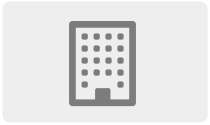Introduction to Statistics with Python
Date: 20 - 21 June 2023
Duration: P1DT6H
May 11, 2023: This course, initially announced as taking place in Basel, will be live-streamed only.
Overview
Statistics are an integral aspect of scientific research, particularly for the life sciences which rely heavily on quantitative methodologies. This course is designed to provide researchers in the life sciences with an introduction to statistics and statistical concepts and their application to a variety of biological problems.
The course will combine lectures on statistics, short tutorials and practical exercises on the topics discussed in the class. These practical exercises will be implemented in the widely used Python language and environment for statistical computing and graphics.
Topics covered during the course include:
* Data manipulation, summarization and plotting : reminder/intro to data manipulation in Python
* Hypothesis testing : when to use it and how?
* Correlation and regression analysis
Audience
This course is intended for life scientists from all levels and disciplines who are not experts in statistics.
Although we will provide materials and a reminder on data manipulation in Python, participants must be comfortable with the Python environment and be able to read, understand and write basic Python commands before attending this course.
Learning objectives
At the end of the course, participants should be able to :
* explore their data, choose the right method to summarize it, graphically and numerically.
* perform appropriate basic hypothesis tests on a data set.
* appraise the results and limitations of these tests, their underlying hypotheses, and multiple testing issues.
* assess and describe the link between different variables, using correlation and regression analysis.
Prerequisites
Knowledge / competencies
- No prior statistical knowledge is required in order to attend the course
- Completion of a basic/introductory course on Python
Before registering, you may test your Python skills this quiz.
We recommend a score of at least 3/5 in order to benefit from the course.
Technical
You are required to have your own laptop. Software to be installed PRIOR to the course:
* latest python3 distribution, preferably bundled using conda
* jupyter
Python libraries to be installed (we recommend the usage of conda for the installation):
* scipy library (NB: if you installed conda, then this library is already installed)
* statsmodels
* pandas
* seaborn
* scikit-learn
Application
The registration fees for academics are 200 CHF and 1000 CHF for for-profit companies.
While participants are registered on a first come, first serve basis, exceptions may be made to ensure diversity and equity.
You will be informed by email of your registration confirmation. Upon reception of the confirmation email, participants will be asked to confirm attendance by paying the fees within 5 days.
Deadline for free-of-charge cancellation is set to 13/06/2023. Cancellation after this date will not be reimbursed. Please note that participation in SIB courses is subject to our general conditions.
Venue and Time
This course will be streamed.
The course will start at 9:00 CET and end around 17:00 CET. Precise information will be provided to the participants in due time.
Additional information
Coordination: Monique Zahn, SIB Training Group.
We will recommend 0.5 ECTS credits for this course (given a passed exam at the end of the course).
You are welcome to register to the SIB courses mailing list to be informed of all future courses and workshops, as well as all important deadlines using the form here.
Please note that participation in SIB courses is subject to our general conditions.
SIB abides by the ELIXIR Code of Conduct. Participants of SIB courses are also required to abide by the same code.
For more information, please contact training@sib.swiss.
Keywords: programming, biostatistics, torsten schwede & thierry sengstag group
City: Streamed
Country: Switzerland
Organizer: SIB Swiss Institute of Bioinformatics (https://ror.org/002n09z45)
Event types:
- Workshops and courses
Activity log

